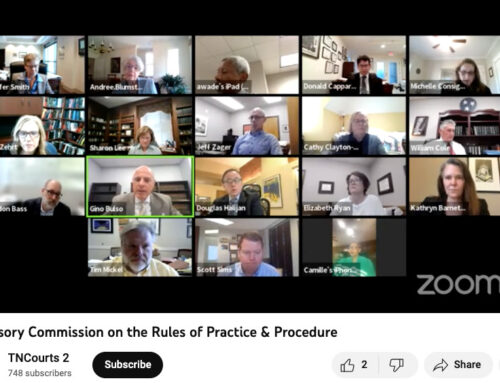Can a county commission require people recording meetings to stay in the back of the room?
A recent policy adopted by the Hamblen County Commission stretches and may exceed the boundaries of a governing body’s authority in Tennessee to limit the ability of citizens to make video recordings of their meetings.
In May, the Hamblen County Commission voted to adopt a policy requiring that anyone using “cameras, video equipment, and other recording devices” be restricted to the rear of the meeting room.
“This will ensure that any recording devices and their operators will not interfere with the conduct of the meeting or hamper the ability of the audience to observe and participate in the meeting,” the change read.
The policy was aimed at Linda Noe, a frequent open government advocate and a former county commissioner who uses her video camera to record the commission’s committee meetings, which are not video-recorded otherwise by the county.
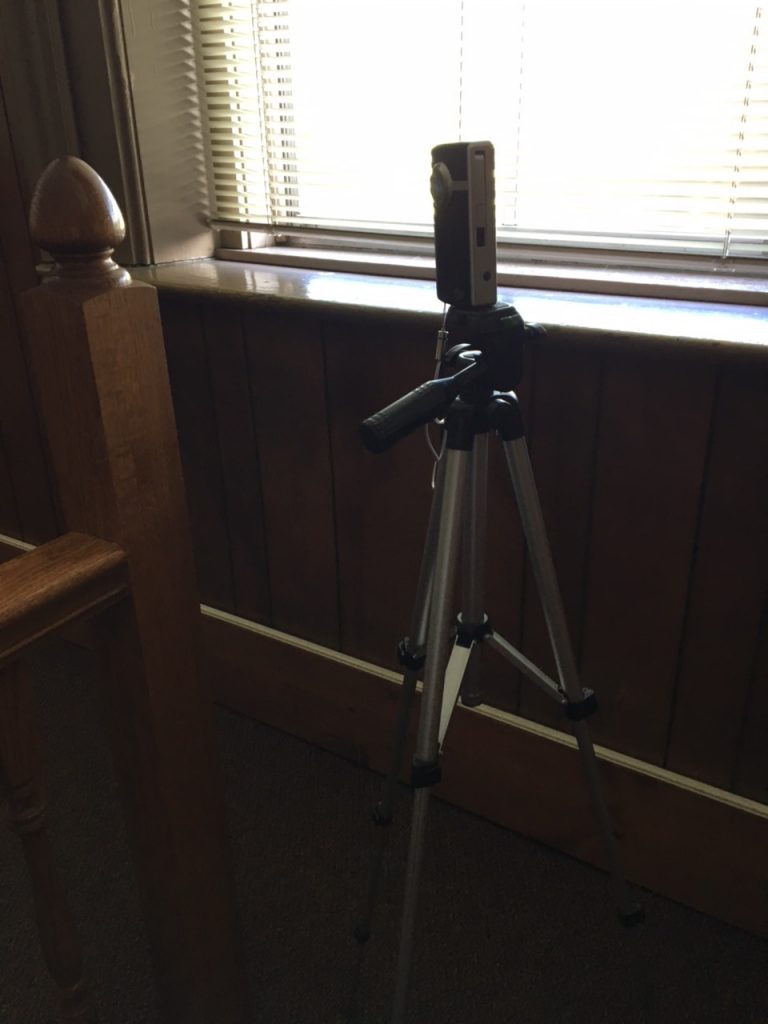
However, it applies to everyone who might use a camera or other recording device, including news reporters or other citizens, even if they are recording just parts of the meeting.
Noe operates a camera on a tripod from the corner of a court pew at the front of the room near a window and says if she had to video record from the back of the room, she would not be able to pick up what the commissioners are saying. She said that the room does not have an adequate sound system for someone video recording in the back of the room to capture audio, and that it’s “not a good angle.”
In explaining to the commission why she chose that location, she said “I get over there so I’m not blocking people… I try to get out of the way but close enough where I can get a quality tape as well as sound. That’s the key thing.”
Sheriff refuses to remove woman video-recording meeting
Though the policy was approved by the full commission on May 23 and went into effect June 1, it has not been enforced.
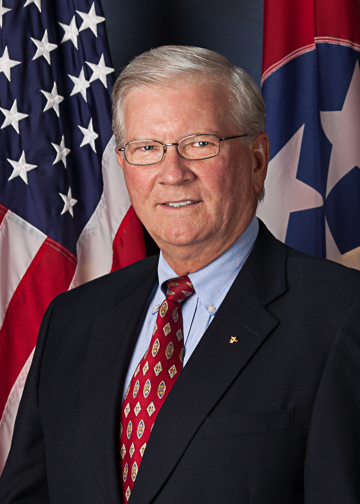
At a June 4 committee meeting, Noe stationed herself again in the front of the room. When asked by the committee’s chair to go to the back of the room, she refused.
Commissioner Tim Goins, father of former state representative Tilman Goins and the commissioner who pushed for the new policy, then asked the sheriff to remove Noe.
But Hamblen County Sheriff Esco Jarnagin declined and told Goins that “[w]hen the chairman of this committee goes to Teresa West (the Hamblen County Court Clerk) and gets a court order then I’ll enforce it.”
“You’re saying you won’t enforce it without a court order?” Goins asked.
“That’s all I’m going to say to that,” Jarnagin replied.
County mayor says primary issue was commentary, not the camera
County Mayor Bill Brittain acknowledged that Noe has refused to abide by the rule, and said that the county is working with the Tennessee County Commissioners Association to come up with a policy they can enforce or something that addresses Noe’s concerns.
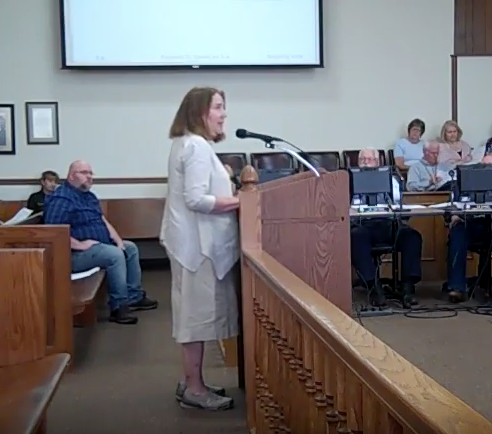
He said the primary issue driving the new policy was not the camera, but “the commentary.” Noe’s comments during the meeting were distracting, particularly to the county commissioner who was located near where Noe was positioned. This commissioner is Commissioner Goins.
Noe, during her comments to the commission before adoption of the camera policy, said that she had heard that Goins had expressed concerns about her “talking, giggling or whatever” but urged the commission to use other options if that was a problem. For example, she said someone could ask her to “shush” or remove her if her comments were disrupting the meeting.
“You’ve got ways of handling disruptions. The camera doesn’t disrupt. It doesn’t need to be sent to the back,” she said. “If I disrupt, you’ve got a way to take care of it. Take me out of here. Or at least ask me if I’m truly disrupting and bothering your meeting and lousing it all up.”
Commissioners question recording policy, but adopt it anyway
Before commissioners voted to adopt the policy, some expressed reservations.
“If we are going to have to put all the cameras back in that corner, we’re going to have to put this man’s camera back in that corner, too,” said Commissioner Wayne NeSmith, pointing to a man in the audience.
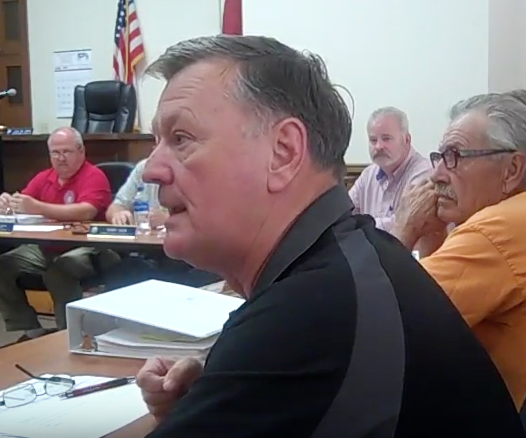
Another commissioner, Chris Cutshaw, asked if they put people who were recording the meeting in the back of the room, was there was a way their recorders could have access to the microphones in the front? He also asked whether the commission could videotape their own committee meetings and learned the cost would be $100 per meeting.
Commissioner Joe Hunstman, addressing Goins’ problem with Noe’s comments during the meetings, said he didn’t understand why this came up. “We didn’t have a problem beforehand, but if we had a problem like that, why can’t you move to another seat?”
Goins replied that “it would be a problem for anybody who sits here.”
The new provision regarding the use of recording devices is part of the commission’s “Public Comment Guidelines for Commission meetings” adopted in November 2015.
The guidelines already include three provisions related to conversations and speech by members of the audience during the meeting:
1. Everyone attending the meeting will refrain from private conversations while the Hamblen County Commission is in session and cell phones shall be set to silent.
2. Citizens and visitors attending the county commission meetings are expected to act respectfully. Any person making personal, impertinent, profane or slanderous remarks or who becomes boisterous while addressing the County Commission or while attending the meeting shall be removed from the room if so directed by the Commission Chairman…
3. The Commission Chairman shall not allow disruptive comments and remarks from the audience, stamping of feet, whistles, yells, and similar demonstrations. The person guilty of such conduct may be removed from the room.
Hamblen County Public Comment Guidelines for Commission Meetings
Restricting recording raises constitutional questions
The new rule requiring any recordings to be done from the back of the room raises constitutional questions.
In December 1995, the Tennessee Attorney General released an opinion when asked if the city of Bells could lawfully ban video or photographic equipment in its Board of Mayor and Aldermen meetings.
The Attorney General’s office issued a lengthy opinion stating that while the U.S. Constitution does not guarantee a right of access to legislative meetings, the Tennessee Constitution does in Article 1, Section 19:
That the printing presses shall be free to every person to examine the proceedings of the Legislature; or of any branch or officer of the government, and no law shall ever be made to restrain the right thereof…
Tennessee Constitution, Article 1, Section 19
The AG’s office noted the Tennessee Supreme Court’s ruling in Dorrier v. Dark in 1976 which said the Open Meetings Act “implements the constitutional requirement of open government.”
Any restriction on cameras in a legislative proceeding would likely be treated by the courts as a “time, place and manner” restraint on protected speech and be subject to an intermediate level of scrutiny, the AG said. To pass intermediate scrutiny, the law would have to further a government interest and do so by means that are substantially related to that interest.
In looking at the proposed policy for the city of Bell’s BOMA, the AG said that the “breadth of the proposed total ban goes well beyond that which is reasonably related to the city’s legitimate interest.
“This Office is further of the opinion that city governing bodies may regulate the use of such devices, but only in a manner reasonably calculated to serve the public safety and welfare or the interest in conducting efficient and orderly public meetings. For example, a city council may prevent cameras from being operated in a manner that actually disrupts a council’s proceedings, that presents a danger to the public safety, or that otherwise prevents the council from conducting an orderly and efficient meeting.”
Is the Hamblen County policy reasonable?
While the policy adopted by Hamblen County Commissioners may seem reasonable — why can’t commissioners decide where cameras are placed in a meeting room? — it does appear the solution is targeted to the wrong problem and creates a new one in the process.
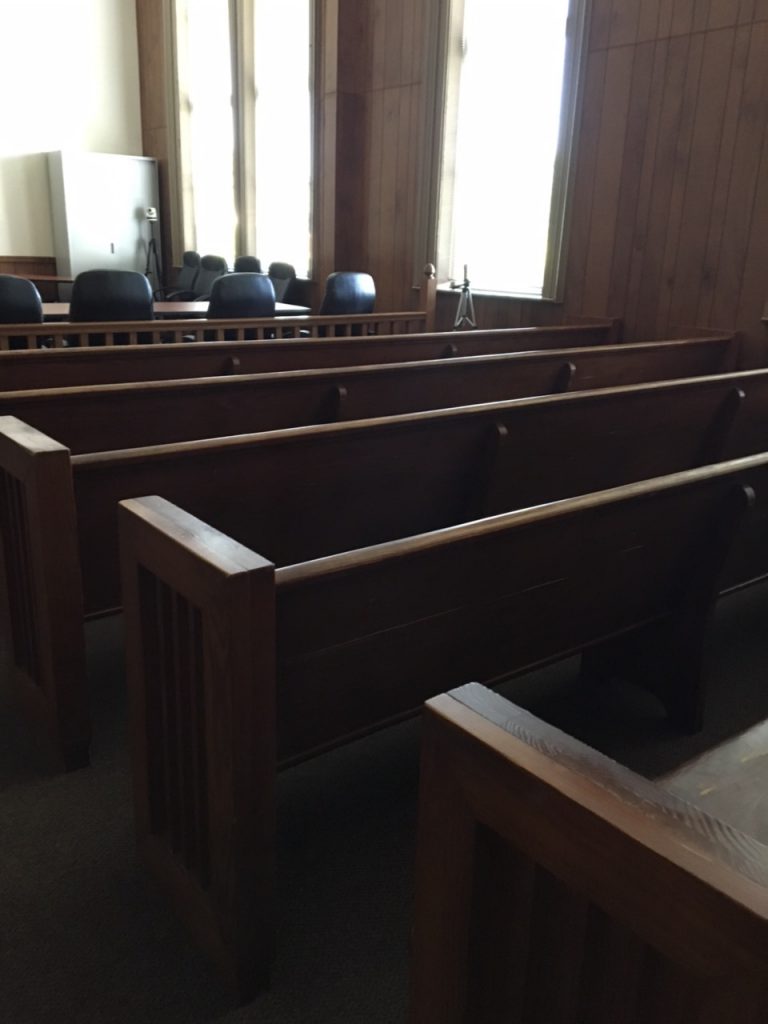
The issue that the commission is trying to address by admission of its own members is not the video recording itself, but the alleged “disruption” caused by comments made by the operator.
In addition, by moving everyone who wants to record to the back of the room, including news reporters who may wish to get a clip of a key commission discussion or vote, the commission is effectively preventing recordings when it is too far back for an ordinary recorder to pick up what’s being said by commission members.
Commissioner NeSmith, who was one of two no votes on the new provision, stuck up for the public during discussion about the policy and described Noe’s recordings of the committee meetings, which she says she posts on YouTube, as a public service for people who can’t get to meetings.
“I think they have a right to do this,” he said.
New rule also prevents press from getting good recordings
It’s quite possible that the public has a right to record the meeting from any position available to the public in the audience so long as it does not cause a safety problem or interfere with the meeting itself or the rights of others. There are ways to record a meeting from a front row without being disruptive.
We will have to see how the issue resolves.
Most important, the benefits of the recordings should not be dismissed. The public benefits by being able to view discussion of public issues in which they are interested when they can’t attend in person.
Recording is also a tool used by the press. It helps with getting accurate quotes. Video and audio recordings of public meetings are often elements of the news story itself — on television, radio and newspaper websites.
Relegating people who are recording to the back of the room where a recorder cannot pick up adequate sound would prevent this and be an unnecessary step when other tools are available for handling disruptions.




